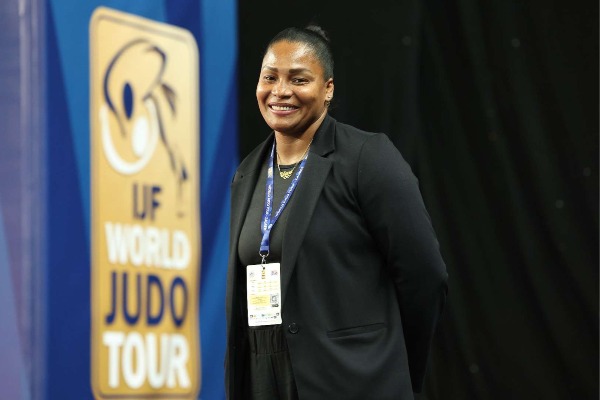Yuri, Attitude is Everything
IJF Report on Yuri Alvear, COL: "Yuri: Attitude is Everything"
At the age of 23, Yuri Alvear raised her arm high and exclaimed, "me!" In 2009, she claimed her first senior world title in Rotterdam, achieving a feat she would repeat in 2013 and 2014. Few judokas in the history of the sport have secured three world titles, but Yuri, for over a decade, proved to be unstoppable. She amassed three additional world medals, two Olympic medals, and five continental titles. A record that might seem reserved for Japanese, French, or perhaps Brazilian judokas. Yet, Yuri is Colombian.
"I started judo at the age of 14 in Jamundi, near Cali, Colombia. I chose this sport because during my childhood, my parents lacked resources, and I aspired to attend university. Although I was older to start judo, I believed my skill in various sports would aid me in achieving higher education. I tried athletics, water polo, volleyball, dance, swimming, and more. Despite the lack of support in my small town, I persevered. My first judo coach was an exceptional person who helped me access training and competitions despite the lack of resources. He told me that if I became the national senior champion, the government could fund my university studies. His name is Ruperto Guauña, and today he is the Colombian National Cadet Coach."
"When I won my first gold medal at a regional event at the age of 15, I knew I wanted to become the best judoka in the world. In my first tournament, all my teammates won gold medals, while I earned a silver and felt bad. But that changed. I worked tirelessly to achieve medals like them."
Currently, Yuri has taken a step into a new dimension: the IJF Sport Commission. In Zagreb, she joined the team, starting at the Zagreb Grand Prix and subsequently at the World Judo Championships Cadets.
"I am thrilled; this is a great opportunity for me. My perspective has changed since my days as an athlete. Previously, I only thought about myself, with an individual focus. Now, I must consider all perspectives. My attention is dedicated to every aspect of the events, ensuring suitable conditions for the current athletes. Before, I didn't understand why referees asked me, for instance, to be quiet during weigh-ins, but now, working in this role, I grasp the importance of these details in ensuring fairness and correctness. Understanding these rules is crucial for everyone. I love judo and value the cooperation that our sport promotes. The IJF undertakes exceptional work, and I'm pleased to be back in this new capacity. I extend my gratitude to Mr. Vizer and Mr. Barta because when I concluded my career as an athlete, I wondered what I would do next. Yet, here I am, back in the family. I work with incredible people and learn continually. At this moment, I'm motivated to learn multiple languages, understand all the rules, and contribute to the team to the best of my abilities. Education is pivotal at all levels, both for coaches and judokas, and only now am I fully comprehending that. Throughout my career, I've learned numerous lessons and continue to grow. I want to tell young Colombian judokas that, even though they still need improved facilities and resources, their conditions have significantly improved since my time. Now, traveling isn't as challenging, and they have training partners at home. With these opportunities within their reach, they should maintain the right attitude. When I began, I didn't have a partner for warm-ups, for example, but regardless of circumstances, I always trained at my best."
"In 2009, during the World Championships, I spent the whole day thinking about reaching the final. I wasn't concerned about money or the lack of partners. Advancing toward my goal was crucial. Sometimes, I think young judokas need to adopt more of this attitude. Their conditions are improving, and the gaps between nations are narrowing. Judo is a potent, demanding sport where concentration and attitude are fundamental. That day, in Rotterdam, I faced Edith Bosch (NED) on her own turf, in the first round. She was a formidable judoka, yet I defeated her in her country. Perhaps back then, they underestimated my ability due to my circumstances and my flag, but I always maintained that mentality of progress, a positive and determined attitude."
"After the 2009 Worlds, a Japanese coach came to Colombia and altered my training approach. We knew that winning once was possible, but achieving it repeatedly required intelligent practice and thinking. Noriyuki Hayakawa was that coach, accompanying me for 11 years. Now, he truly is my family. He played a significant role in my ability to maintain a focused attitude throughout that time."
Yuri Alvear achieved her goal of attending university through a full sports scholarship at the National School of Sports in Cali. She completed her degree just as she had planned during her adolescence. This story demonstrates that attitude is crucial to achieving success, regardless of circumstances.
